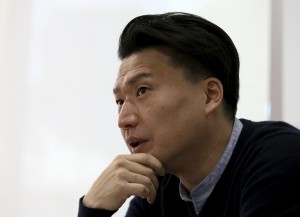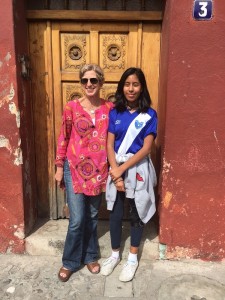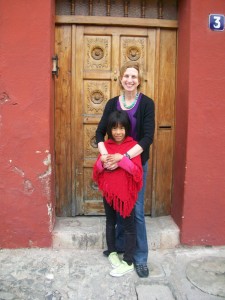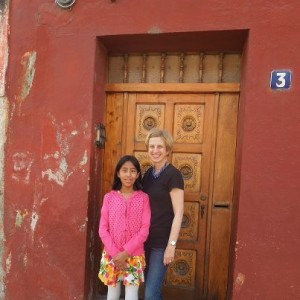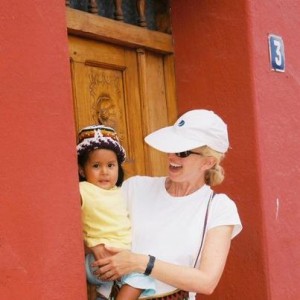A week or so ago I posted about Sliding Into Home, the new YA novel by my friend and fellow Guatmama Nina Vincent. One of the themes in Nina’s book is connection to birth country. Nina interviewed me on the subject, posted today on her blog. Thanks, Nina!
Here’s an excerpt:
NV I know that you have made it a point to have your children learn Spanish. Can you talk a little bit about why you felt that was important?
JO’D The first year we went to Latin American Heritage Camp in Colorado, we attended a panel discussion led by young adults who’d been adopted from Central and South America. The audience was filled with adoptive parents and the question was asked, “What’s your advice for us? What’s one thing you’d like us to know?” And to a panelist, each of these young adults said, “Teach your children Spanish. Even if your kids rebel and resist. Keep trying.”
Language is power. It’s the way we connect with one another. You’ve heard the expression: “We speak the same language.” When we go to Guatemala, it’s great to be able to communicate directly with people. Speaking another person’s language often leads to deeper understanding of that person.
What’s interesting is the way my kids’ attitude toward Spanish has evolved. When they were younger, they studied the language because they didn’t have a choice. They took Spanish in school; they studied for a month every summer in Guatemala; and for five years, Olivia attended a two-week Spanish immersion camp in Minnesota (Concordia).
All that learning was directed by us, their parents.
But as teenagers, they’re out in the world as independent operators. Because of the way they look, strangers start speaking to them in Spanish. Kids at school who are bilingual speak to them in Spanish. My kids want to speak Spanish if only because everyone assumes they do. To become fluent is their goal now, not mine.
And let’s face it, being able to speak another language is totally cool.


 ShareThis
ShareThis



 ShareThis
ShareThis